

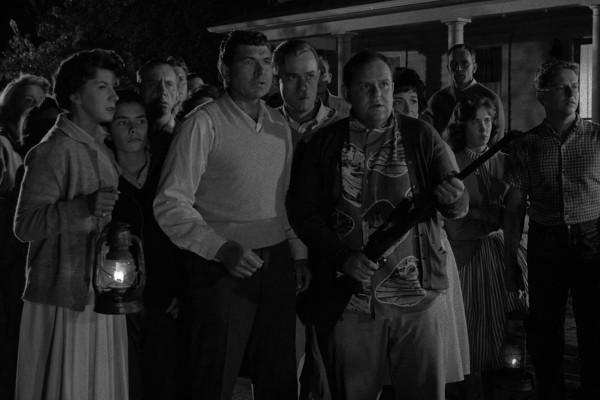
Serling was always knowingly cagey about the series, claiming in interviews that it was just there for "entertainment" and that it carried no message or commentaries on contemporary life. A glance at a vast number of episodes reveal how false this statement is, and, if season one was a little more "safe" than it later became, it still contains plenty of politically outspoken moments.
Like many American series that are moralistic, The Twilight Zone can apply said moralising with a heavy-handed nature, though this is usually more charming than grating. With lines like "their world is full of Maple Streets", and Serling's narration assuring us that "prejudices can kill", this tale of post-McCarthy paranoia is certainly one of the most laboured in making its point. Sadly, however, it's an episode with themes that are still highly relevant today.
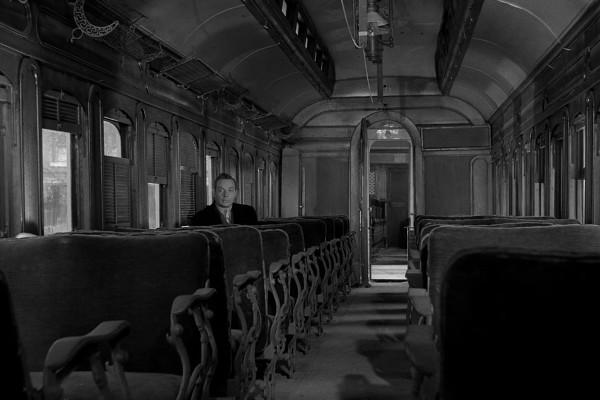
Stories can grip audiences when they can empathise with the characters. The Fever isn't an especially popular episode of the series, and one possible reason may be that not every viewer knows the urges of gambling addiction. However, a far greater number of people will be able to relate to the plight of Gart Williams, a man broken down by the pace and demands of modern society, longing for serenity. The beauty of Rod's writing is that often sympathetic characters will be offered no respite, and from Williams's comically brutish boss down to his uncaring wife, Gart is afforded no redemption.
The longing for a simpler life of yesteryear was a recurring motif of Serling's, from Walking Distance down to his Night Gallery episode They're Tearing Down Tim Riley's Bar. A Stop at Willougby was Serling's favourite episode of season one, and is certainly strong enough, like all of the top five, to assume top place. They're Tearing Down Tim Riley's Bar, airing over ten years later, allows Serling to provide even more pain for the lead character, with rawness in place of Willoughby's sometimes lightly comic torments. However, the Night Gallery episode tacks on an unlikely happy ending, whereas Willoughby gives its lead player no way out. In contrast, Walking Distance's Martin Sloan gets off lightly...
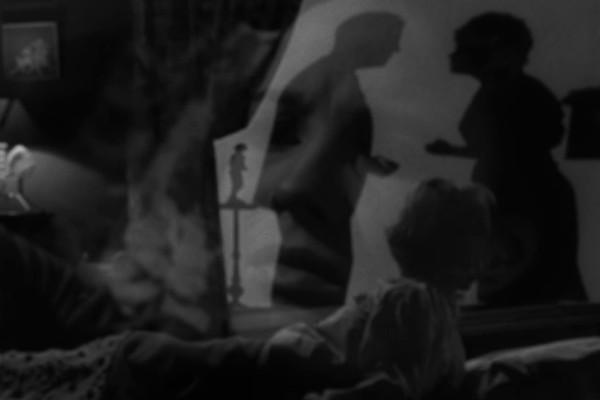
A superb psychological drama by Serling, whereby a woman who passes by her mother's murderer is haunted by the vision of herself as a young child, prompting long-buried memories to surface. It's a brilliant conceit, only slightly detracted from by an unusually distracting Jerry Goldsmith score. The Twilight Zone's incidental music is, naturally, of an old-fashioned variety, yet also cinematic, but here is up too far in the mix. Yet for small criticisms like the music, the obvious use of a stunt double at the end, or the bit where the young child actress, Terry Burnham, silently mouths Janice Rule's lines in one of their scenes together, there's a really sinister undercurrent, as the violent murder of a woman is acted out in silhouette, as well as the threatened life of a child.
All involved give great performances, though sadly, as with the cast of a lot of original Twilight Zone stories, many of them have since passed away. In fact, only the uncredited actress playing the second little girl (Morgan Brittany) is still alive today. Terry Burnham died in 2013 of a cardiac arrest, aged just 64. Tragically she had no family, and her ashes were due to be placed into an unmarked shared grave. Thankfully fans raised funds so that she could have a more dignified resting place, in her own marked grave.
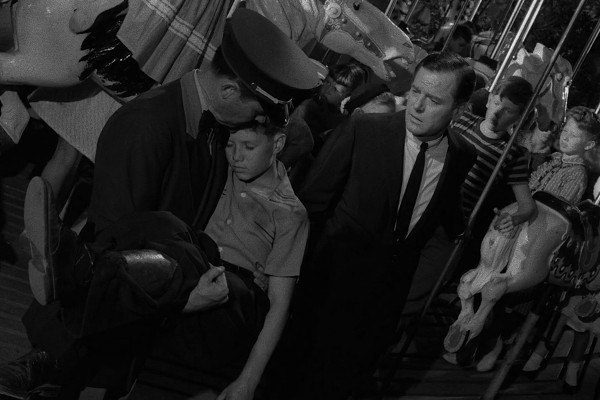
A timeless classic with a weary businessman Martin Sloan trying to return to his past. A perfect meeting of performance, direction and score that always rewards. Astonishingly, Rod Serling himself wasn't overly fond of the episode, being one of his own biggest critics, and pulled apart the logic of certain scenes and motivations. If there's one valid criticism, it's that the final scenes between the grown businessman and his father are a little too "written", even by Serling's usual standards, but such things can be overlooked. There's a dreamlike quality to much of Walking Distance, and it's perhaps no coincidence that Sloan's first appearance in the past is given to us by the wonder of a looking glass...
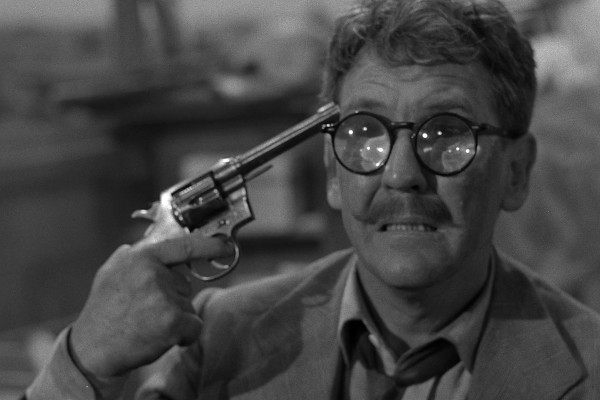
Based on a short story by Lyn Venable, this Serling episode is one of the most lauded and famous of all the series. There's perhaps a natural tendency to want to downplay traditionally "popular" episodes, where the desire to uncover lesser-known gems combines with the frequent feeling that anything so praised and highly regarded is bound to seem underwhelming by default.
This one, though, deserves all the credit. Although in many ways a light, humorous episode, with Burgess Meredith one of the series' regular line-up of eccentric "oddballs" married to one of the series' trademark harridans, there's darker themes at work. Sure, the idea of a nuclear holocaust and the final, very famous, ironic twist somehow manage to still be almost comedic. But there's a sequence where, for a few moments, Meredith's Henry Bemis raises a gun to his head and decides to kill himself. Dark themes for an episode that also explores universally relatable concepts of isolation, intellectualism and psychological cruelty.
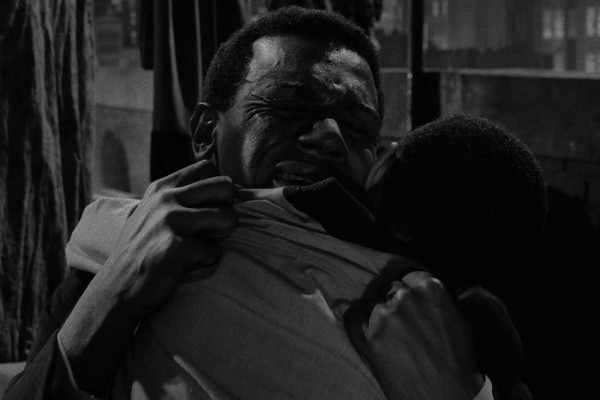
Heart rending and raw, Serling puts his trademark character monologues to good use in this episode that features an almost entirely black cast. The series was awarded the Unity Award for Outstanding Contributions to Better Race Relations in 1961, and Serling went on record as saying that he wanted to champion "the negro actor". (Hey, it was the 60s).
Strangely it wasn't something the series really dealt with again to any great degree, or at least not to the degree of pain exhibited here. Although ostensibly a boxing story, the experience of life for a black man in 60s America is writ large in one of Serling's finest scripts: "Somebody gotta take you by the hair, and rub your face into the world 'til you get the taste and feel of the way things are [...] I've been wishing all my life. You understand, Henry? I got a gut ache from wishin' and all I gotta show for it is a face full of scars. And a head full of memories of all the hurt and misery I've had to live with and sleep with all my miserable life." A superbly downbeat score by Jerry Goldsmith helps cement the mood further.
Ivan Dixon plays the aged boxer, and Steven Perry plays the young boy trying to wish his life better... the two could be seen again the following year in the Sidney Poitier movie A Raisin In the Sun.